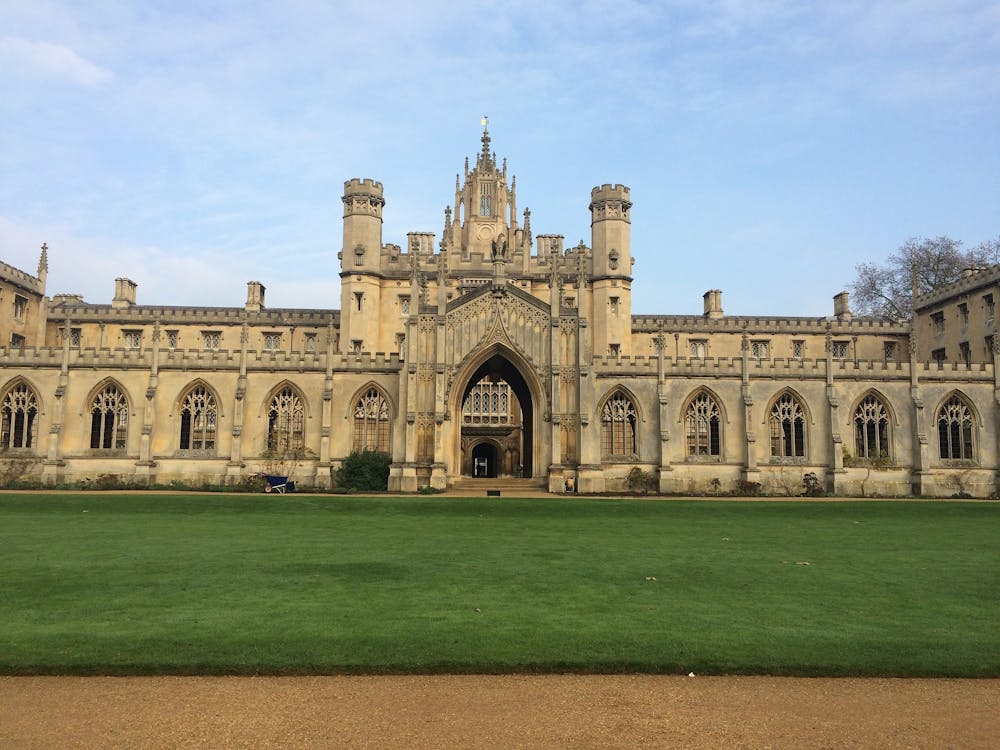Vinay Ayyappan, a senior studying Biomedical Engineering (BME) at Hopkins, has been awarded the Churchill Scholarship to study at the University of Cambridge.
The Churchill Scholarship is highly prestigious, funding one year of master’s study at Cambridge. The award is for American students interested in the fields of science, engineering and mathematics. It is valued at $60,000 and includes living and travel stipends as well as tuition for the program, which ranges in length from nine months to one year. Students are selected based on their academic achievements, extracurricular interests and dedication to research. Just 15 students receive the award annually.
The program was established at the request of Winston Churchill, the famous former British Prime Minister, in 1963 to fulfill his vision of U.S.–U.K. scientific exchange to advance science and technology on both sides of the Atlantic and ensure future prosperity and security. Ayyappan has received several other notable scholarships in recent years. He was a recipient of the Goldwater Scholarship in 2019, which provides up to $7,500 in funding per academic year for the next generation of research leaders in science, engineering and mathematics.
He is also a two-time recipient of the Astronaut Scholarship in 2018 and 2019, which provides a $10,000 scholarship, a paid trip to the Astronaut Scholarship Foundation Innovators Weekend in the fall, and the opportunity to network with fellow scholar alumni and with the founding astronauts themselves.
At Cambridge, Ayyappan will pursue a Master of Philosophy degree in Medical Science. He plans to build upon his work at Hopkins researching imaging techniques to create more accurate models of cancer progression. He will work in the lab of radiologist Ferdia Gallagher performing human trials of hyperpolarized magnetic resonance imaging — a cancer imaging technique developed by Gallagher that is 10,000 times as sensitive as traditional imaging methods.
“I’ve been learning about this field since freshman year, which has been mostly developed by researchers at Cambridge,” Ayyappan said in an interview with The News-Letter. “I’m really excited about the applications of this technology in the clinic.”
While at Hopkins, Ayyappan has been an assistant for three professors, where he has conducted research in the areas of radiology, cancer imaging and biochemistry. One lab Ayyappan works in, for example, is that of Ishan Barman, an associate professor of oncology, radiology and radiological science in the School of Medicine. In Barman’s lab, Ayyappan was involved using artificial intelligence analysis to extract biological traits encoded in optical images. Each of his research mentors speak highly of him.
Ayyappan’s interest in researching cancer progression dates back to high school when both a close friend and teacher were diagnosed with the disease. In addition to his work in the classroom, Ayyappan serves as the president of the Engineering World Health chapter at Hopkins. He also volunteers at the Hopkins Children’s Center, where he spearheaded a project to help patients keep up with school work through the help of Hopkins undergraduates.
The News-Letter had the opportunity to ask Ayyappan some questions about his success at Hopkins and hear his advice for students.
What were your most impactful experiences and extracurriculars as a student at Hopkins?
In addition to research, I’ve really enjoyed participating in some engineering-related activities on campus, like Engineering World Health, and via the BME department (for example, the design team program). Both have helped me really see cross-talks between research and clinical practice. Working at the children’s hospital has also been super meaningful; it’s been a constant reminder and motivation to continue to research cancer.
How did you become involved in research?
Growing up in Silicon Valley, there wasn’t really ever a shortage of opportunities or exposure to research. I always really enjoyed participating in science fairs. Answering and asking questions about how biological systems work was and is thrilling.
What is your advice for other students pursuing competitive awards?
I found the National Fellowships Program to be incredibly supportive and helpful throughout the process. I certainly hope that future applicants really commit to enjoying the process of introspection while applying and of making friends with the cohort of applicants.
What are your future plans for Cambridge and beyond?
Following my return, I’ll start MD/PhD training, with the long-term goal of pursuing a career as a physician-scientist at a research hospital.





